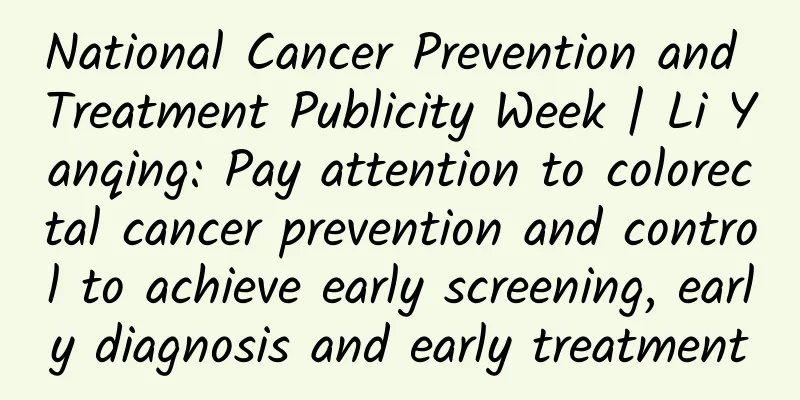Can I take a chest X-ray while breastfeeding?

|
Many mothers who have just given birth also have questions: "Can I take a chest X-ray while breastfeeding? Will the radiation enter the breast milk and affect breastfeeding?" Many hospital outpatient clinics also post slogans at the entrance of the radiology department to advise patients: "It is taboo to take X-rays during breastfeeding." Due to this wrong view, how many babies still in their mothers' bellies have had their right to survive cruelly taken away because their mothers inadvertently took X-rays. Can pregnant and breastfeeding mothers take X-rays, CT scans, or MRIs? Let’s find out together. Medical examinations include: B-ultrasound, X-ray, CT/MRI plain scan and enhancement, radioactive material radionuclide scanner, etc. Medical examination during breastfeeding For breastfeeding mothers, the safety of medical assisted examinations lies mainly in whether the radiation will accumulate in the breasts and milk, and whether the contrast agent will be absorbed by the baby's body and harm its health. Safety tests during breastfeeding include: B-ultrasound, X-ray (covering all parts of the body), CT/MRI plain scan (covering all parts of the body), positron emission tomography (PET), and infrared induction testing. The mother can breastfeed immediately after the test. This test will not cause the radiation to accumulate in the breast, so it will neither cause milk abnormalities to affect the baby nor reduce the secretion of milk. However, when examining the breasts, breasts filled with milk may be difficult for the doctor to observe, so the doctor will recommend that the mother empty her breasts before the examination. When doing CT/MRI enhancement, radioactive contrast agents need to be injected into the body. For breastfeeding mothers, most contrast agents are safe, such as barium sulfate, Magnevist aqueous solution, butyryl iodide, gadolinium-containing agents, iodine-containing agents, etc. Although these contrast agents can enter breast milk, their internal solubility is extremely low, that is, even if they appear in breast milk, they cannot be absorbed by the baby's body after being eaten by the child (they cannot be absorbed if taken orally). There are only a few contrast agents that can affect breastfeeding during CT/MRI, such as manganese sulfamethoxazole trisodium, because it can rapidly increase the manganese content in breast milk and be absorbed into the body by the baby. It is generally recommended to wait at least 4 hours after the test before breastfeeding. When a breastfeeding mother undergoes CT/MRI enhancement, she should consider carefully and ask the doctor what the contrast agent is. Then, by checking the oral solubility of the drug, the average milk concentration and other information, it can be determined whether she can breastfeed immediately. If you are concerned about the impact on breastfeeding, wait 5-10 half-lives of the drug before breastfeeding. |
<<: Can I drink beer during breastfeeding?
>>: The story of not being able to return to one's parents' home during confinement
Recommend
What happens when an ultrasound shows a dark area after an abortion?
After an unexpected pregnancy, if you do not want...
Is eating durian helpful for dysmenorrhea?
Women's bodies will become very weak during m...
What to do if your child is afraid of milk and has breast engorgement
In many cases, breastfeeding is not suitable for ...
What does it feel like for a boy to go through the back door? What is the difference between going through the back door and going through the front door?
Making love between men and women is a pleasant a...
How to treat blood in leucorrhea?
Many female patients suffer from gynecological di...
Will the fetus stop growing at seven months of pregnancy?
The reason why pregnant women need to undergo pre...
Oral Science | Which deciduous teeth need to be extracted?
When it comes to the baby needing to have a tooth...
Can I eat Eucommia ulmoides during breastfeeding?
Eucommia ulmoides actually refers to the bark of ...
Seven months of contractions
Many female friends feel abdominal cramps when th...
What is the difference between a 30 yuan kiwi and a 15 yuan kiwi? The answer is...
Many people have eaten or seen kiwi fruit and kiw...
What to do if your armpits have odor during pregnancy
What should I do if there is odor under my armpit...
Can I drink red bean and barley tea when I have my period?
Women should pay great attention to their diet du...
What is uterine adenoma?
Uterine health is related to women's reproduc...
Is progesterone 27 normal?
In early pregnancy, progesterone levels are very ...
What kind of jewelry should women wear?
Women's love for jewelry is no longer just to...









